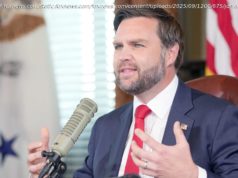The ghastly saga has strained relations between Turkey and Saudi Arabia, and put the United States at the center of a dispute with a key Arab ally.
President Trump has acknowledged the likely death of Jamal Khashoggi and the credibility of intelligence reports that implicate Saudi Arabia, a stark departure from his defense of the kingdom.
Mr. Trump’s shift is among the latest turns in a fast-moving saga that has strained relations between Turkey and Saudi Arabia, and put the United States at the center of the international dispute over Saudi Arabia’s apparent impunity.
In the more than two weeks since Mr. Khashoggi — a dissident Saudi writer and Virginia resident — vanished in the Saudi consulate in Istanbul, a steady stream of information has emerged from Turkish officials that offer harrowing details of his apparent assassination at the hands of Saudis linked to the kingdom’s crown prince.
Even for those who have watched the developments closely, it has been difficult to keep up. Here are some of the most important recent updates:
• Mr. Trump on Thursday said he believes Mr. Khashoggi is likely dead. His statement came after he was briefed by Secretary of State Mike Pompeo, who had just visited Riyadh and Ankara
• Saudi Arabia announced its own investigation and may blame an senior intelligence official for Mr. Khashoggi’s death.
• Several prominent figures, including Treasury Secretary Steven Mnuchin, have withdrawn from an investment conference in Riyadh.
• A Turkish news outlet released photographs of a close associate of Saudi Crown Prince Mohammed bin Salman entering the Istanbul consulate on the day of Mr. Khashoggi’s disappearance.
• A senior Turkish official described an audio recording of Mr. Khashoggi’s killing and detailed how he was beheaded and dismembered.
The bulk of evidence has come from a steady stream of leaks from Turkish authorities to pro-government news outlets. That information included the identification of 15 Saudis who Turkish officials said had formed a hit squad to assassinate and dispose of Mr. Khashoggi’s body.
Details in an audio recording from inside the consulate show that Saudi agents were waiting when Mr. Khashoggi walked into the building, and that he was dead within minutes, a senior Turkish official said. The audio revealed that Mr. Khashoggi was beheaded and dismembered, and his fingers severed, and that within two hours the killers were gone.
The New York Times confirmed that at least nine of the 15 suspects identified by Turkish authorities worked for the Saudi security services, military or other government ministries.
One of those men, Maher Abdulaziz Mutreb, has traveled extensively with Crown Prince Mohammed, including in recent trips to the United States, perhaps as a bodyguard. On Thursday, the Turkish pro-government news outlet Sabah released photos showing Mr. Mutreb entering the Saudi consulate in Istanbul hours before Mr. Khashoggi arrived on Oct. 2.
Another of the suspects, Dr. Salah al-Tubaigy, is an autopsy expert, lending credence to reports that the writer’s assassination was planned.
American intelligence agencies have become increasingly convinced that Prince Mohammed is culpable.
When Mr. Khashoggi disappeared, the Saudi government first said it had no information on the writer’s whereabouts. Officials, including Prince Mohammed himself, said that Mr. Khashoggi had left the consulate freely, and that they had no knowledge of what happened to him.
As information continued to flow from Turkish officials, Saudi Arabia forcefully denied its involvement. Then, as the evidence piled up, Saudi officials seemed to change course.
There were indications later that Saudi Arabia planned to introduce a narrative that Mr. Khashoggi’s death was the result of an interrogation gone wrong, a theory Mr. Trump echoed to reporters, saying “rogue killers” could be behind the disappearance.
Now, Saudi authorities are considering assigning blame to a top Saudi intelligence official, who also has close ties to Crown Prince Mohammed, in an effort to deflect blame from the crown prince himself.
Maj. Gen. Ahmed al-Assiri, a high-ranking adviser to the crown prince, has been singled out as a potential scapegoat. The Saudis have still not revealed details of their investigation into Mr. Khashoggi’s disappearance, but the Trump administration said it expected it within days.
In the more than two weeks since Mr. Khashoggi’s disappearance, Washington has edged toward acknowledging Saudi responsibility as the evidence against the Saudis has increased.
Early on, the Trump administration stood by its Saudi allies, even as Republican lawmakers demanded an independent inquiry into the incident and called for sanctions. Mr. Trump asserted that relations with the kingdom were “excellent,” and that he did not have plans to introduce sanctions.
On Monday, Mr. Trump said that he had discussed the case with King Salman bin Abdulaziz, the crown prince’s father, who denied any knowledge of what had befallen Mr. Khashoggi, and that he was “immediately sending” Mr. Pompeo to meet with the king and the crown prince and visit with investigators in Turkey.
After Mr. Trump was briefed by Mr. Pompeo upon his return from Istanbul, on Thursday, the president seemed to have altered his views, saying he believed Mr. Khashoggi was dead. He expressed confidence in several intelligence reports that suggest a Saudi role in his assassination.
The same day, Mr. Mnuchin announced his withdrawal from the Future Investment Initiative conference in Riyadh next week after facing backlash over a decision to attend in the midst of the unresolved scandal.
Mr. Pompeo, who briefed reporters outside the White House on Thursday, said that the United States would give the Saudis a few more days to conduct their investigation, and that the report would be “transparent for everyone to see, to ask questions about and to acquire.”






